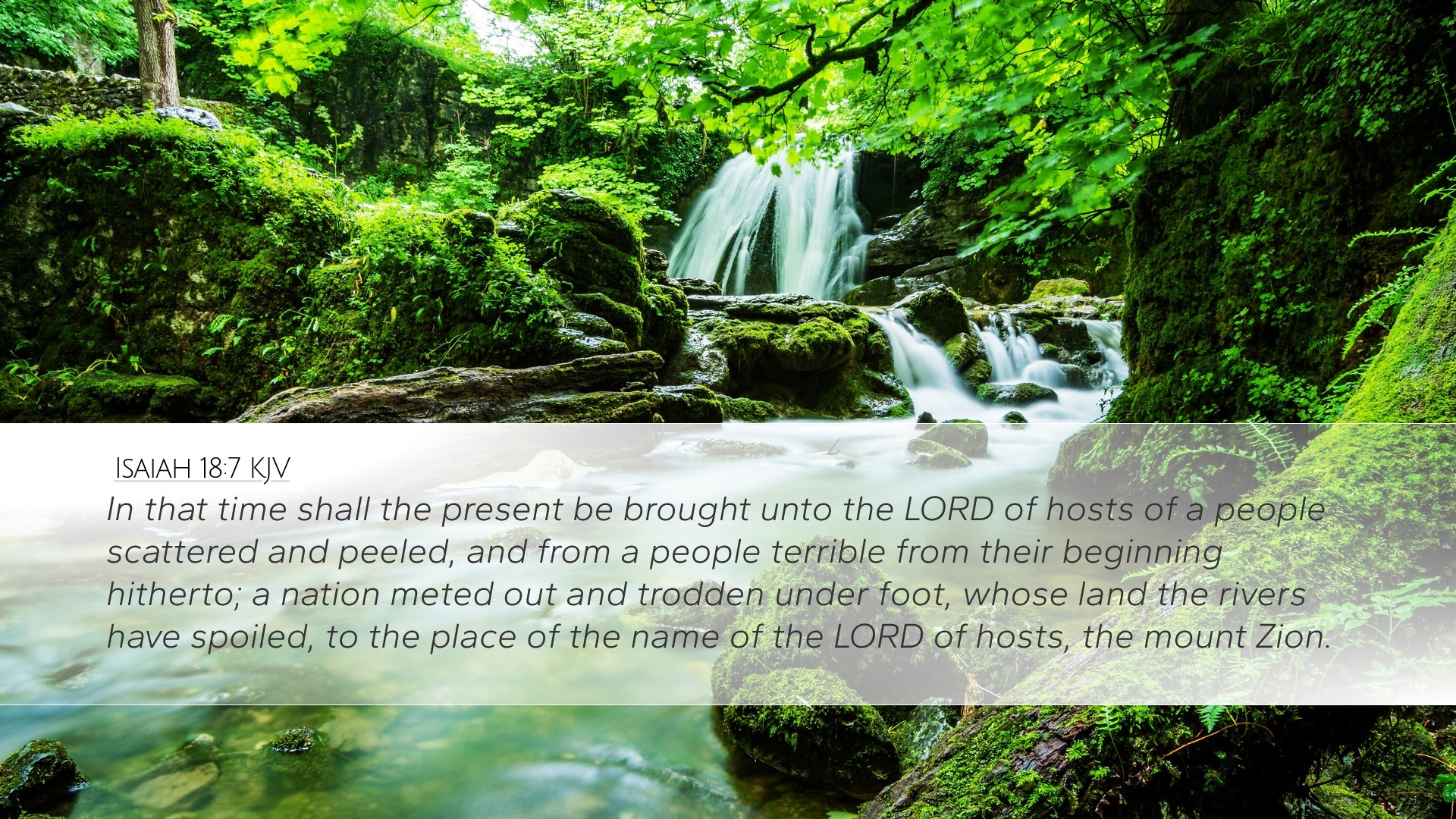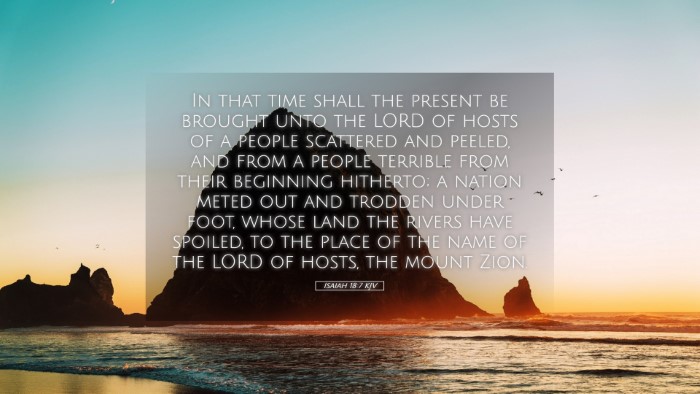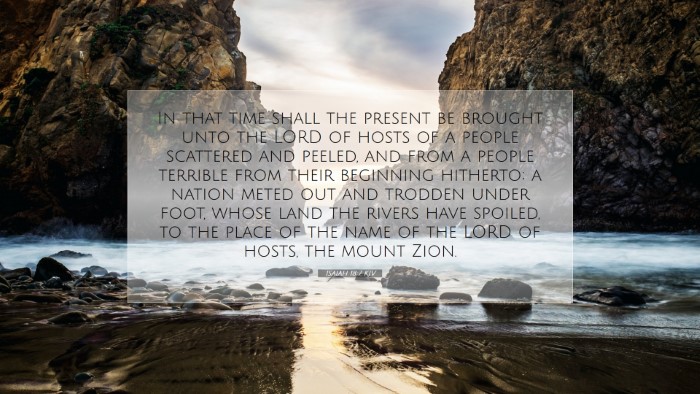Commentary on Isaiah 18:7
Isaiah 18:7 reads: "In that time shall the present be brought unto the LORD of hosts of a people scattered and peeled, and from a terrible nation, a nation meted out and trodden down, whose land the rivers have spoiled, to the place of the name of the LORD of hosts, the mount Zion." This verse addresses the future offerings that shall be presented to God from a particular group of people, highlighting themes of gathering, sacrifice, and divine recognition.
Contextual Overview
This passage forms part of a broader prophetic segment in Isaiah that deals with the fate of nations. The preceding chapters address various nations – their judgments and eventual restoration. Chapter 18 directly concerns Cush (Ethiopia) and portrays the nation as a witness to the power of God and a contributor to the grand tapestry of God's redemptive history.
Thematic Analysis
- The Present Brought to the Lord: This act signifies recognition of God’s sovereignty and the appropriate response of worship and gratitude. Such offerings point towards an acknowledgment of God's majesty, suggesting that even those outside Israel will turn and honor Him.
- A Scattered and Peeled People: The phrase "scattered and peeled" suggests a people who have faced adversity, trials, and tribulations. Matthew Henry notes that, though the people may be small and oppressed, they are not to be overlooked in God’s plan.
- A Terrible Nation: The reference to a "terrible nation" implies that Cush had a significant reputation for strength and fear. Despite its perceived might, the nation ultimately submits to the God of Israel. Albert Barnes elaborates that the greatness of a nation does not guarantee its independence from God.
- The Place of God's Name: The mount Zion is significant as it symbolizes God’s dwelling place and His covenant relationship with Israel. This symbolizes hope for all nations to come and find refuge in God.
Insights from Commentaries
Matthew Henry
Henry emphasizes the inclusivity of God’s plan for nations beyond Israel. He presents the idea that all nations, regardless of their past, will be drawn to God and that true worship will be characterized by coming together in acknowledgment of divine sovereignty.
Albert Barnes
Barnes expounds on the significance of the term "present." He asserts that God's acceptance of offerings from a diverse array of nations illustrates His grace and the global aspect of salvation. He also highlights that the mention of the rivers alludes to the devastation brought upon the land, hinting at the natural consequences in relation to God’s judgement.
Adam Clarke
Clarke provides an expositional insight into the nature of the "present" being offered. He posits that it represents both physical gifts and spiritual devotion, a holistic representation encompassing every aspect of a people’s lives before God. He underscores the prophetic vision of a time when peoples from far nations will bring their tributes to the Lord, showing completeness in God’s redemptive power.
The Hermeneutical Consideration
For pastors and theologians, the interpretation of Isaiah 18:7 provides profound insight into the nature of worship and the global mission of the Church. It hints at a future unity of all believers regardless of origin. It serves as a reminder that God's grace extends far beyond ethnic and geographical boundaries and inspires a contemporary application of outreach and inclusiveness in ministry.
Conclusion
In essence, Isaiah 18:7 represents a powerful declaration of God's sovereignty over the nations and the future hope for redemption and worship. It encourages a posture of humility and acknowledgment before the Lord, inviting all to present their offerings—both spiritual and material—in recognition of His majesty. The insights from the commentaries reinforce the timeless truth that God seeks a worshipful people, uniting diverse backgrounds in the adoration of His holy name.


